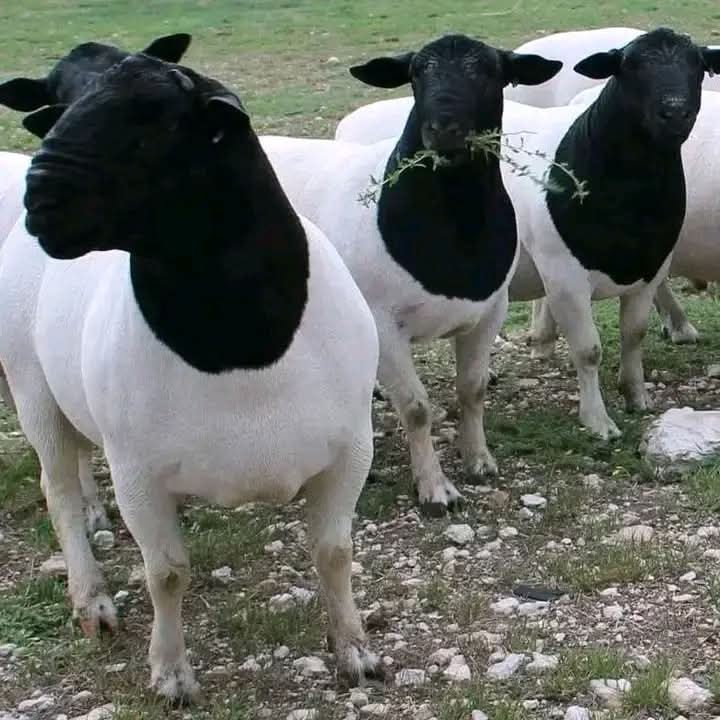DORPER SHEEP FEEDING
DORPER SHEEP FEEDING
Feeding Dorper sheep properly is essential to ensure their health, productivity, and overall well-being. Here are three key tips for feeding them:
1. Provide High-Quality Forage
Dorper sheep, like other sheep breeds, thrive on good-quality forage, including grasses, legumes, and hay. Ensure that they have access to fresh, clean pasture where they can graze. The pasture should be nutrient-dense and free from contaminants. When pasture quality declines in winter or drought periods, supplement their diet with hay or silage to meet their nutritional needs.
2. Supplement with Concentrates
While Dorper sheep are hardy and can survive on pasture alone, supplementary feeding may be required, especially during lactation, pregnancy, or when they are in high production phases. Concentrates, such as grains or formulated pellets, can provide the additional energy, protein, and minerals they need to maintain body condition, produce wool (though Dorper sheep are hair sheep), and give birth to healthy lambs. Make sure the concentrate is balanced and appropriate for the sheep’s stage of growth or production.
3. Ensure Access to Fresh Water and Minerals
A constant supply of fresh, clean water is essential for the health of Dorper sheep. Dehydration can lead to health problems, particularly during hot weather or after physical exertion. Additionally, providing a free-choice mineral supplement (with essential vitamins and minerals like salt, calcium, and phosphorus) can help prevent deficiencies that may affect their growth, reproduction, and overall well-being. Mineral licks or blocks are an easy way to ensure they get the necessary nutrients.
By focusing on these feeding practices, Dorper sheep can thrive and maintain good health, productivity, and resilience.
DORPER SHEEP FEEDING
Feeding Dorper sheep properly is essential to ensure their health, productivity, and overall well-being. Here are three key tips for feeding them:
1. Provide High-Quality Forage
Dorper sheep, like other sheep breeds, thrive on good-quality forage, including grasses, legumes, and hay. Ensure that they have access to fresh, clean pasture where they can graze. The pasture should be nutrient-dense and free from contaminants. When pasture quality declines in winter or drought periods, supplement their diet with hay or silage to meet their nutritional needs.
2. Supplement with Concentrates
While Dorper sheep are hardy and can survive on pasture alone, supplementary feeding may be required, especially during lactation, pregnancy, or when they are in high production phases. Concentrates, such as grains or formulated pellets, can provide the additional energy, protein, and minerals they need to maintain body condition, produce wool (though Dorper sheep are hair sheep), and give birth to healthy lambs. Make sure the concentrate is balanced and appropriate for the sheep’s stage of growth or production.
3. Ensure Access to Fresh Water and Minerals
A constant supply of fresh, clean water is essential for the health of Dorper sheep. Dehydration can lead to health problems, particularly during hot weather or after physical exertion. Additionally, providing a free-choice mineral supplement (with essential vitamins and minerals like salt, calcium, and phosphorus) can help prevent deficiencies that may affect their growth, reproduction, and overall well-being. Mineral licks or blocks are an easy way to ensure they get the necessary nutrients.
By focusing on these feeding practices, Dorper sheep can thrive and maintain good health, productivity, and resilience.
